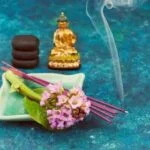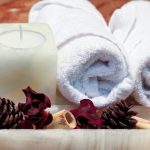Are you wondering how to pick a good aromatherapy diffuser? Look no further. Aromatherapy diffusers are a popular choice for those looking to enjoy the benefits of essential oils in their homes or work spaces.
In this article, we will delve into what aromatherapy diffusers are and how they work, the benefits of using them, the different types available, factors to consider when choosing one, compatible essential oils, maintenance tips, and even provide a list of the top 10 diffusers on the market. By the end of this comprehensive guide, you’ll have all the information you need to make an informed decision on which aromatherapy diffuser is right for you.
Aromatherapy diffusers are devices that disperse essential oils into the air in order to provide therapeutic benefits. These benefits can range from relaxation and stress relief to improved sleep and mental clarity. Understanding how these diffusers work and their potential benefits is essential in making an informed decision when choosing one for your home or office.
In addition to understanding what aromatherapy diffusers are and how they work, it’s important to be aware of the different types available in the market. With options such as ultrasonic, nebulizing, evaporative, and heat diffusers, each type has its own unique set of features and benefits.
It’s crucial to consider factors such as room size, run time, noise level, and even budget when deciding which type is best suited for your needs. And that’s just scratching the surface – there’s so much more to learn about choosing the right aromatherapy diffuser.
The Benefits of Using Aromatherapy Diffusers
Aromatherapy diffusers offer numerous benefits for both physical and mental well-being. Here are some of the key advantages of using aromatherapy diffusers:
1. Improved Air Quality: Aromatherapy diffusers help to purify and freshen the air in your home or office by dispersing essential oils into the air. This can help to eliminate odors, airborne pathogens, and other pollutants, creating a more pleasant and healthier environment.
2. Emotional and Mental Health Benefits: Certain essential oils have been shown to have mood-enhancing properties that can help reduce stress, anxiety, and promote relaxation. By using an aromatherapy diffuser, you can benefit from these therapeutic effects by inhaling the aromatic vapor.
3. Physical Health Benefits: Aromatherapy diffusers can also provide physical health benefits by delivering antimicrobial, antiviral, and even pain-relieving properties of certain essential oils. This can potentially boost your immune system and alleviate symptoms of respiratory conditions such as colds or allergies.
In addition to these benefits, using an aromatherapy diffuser can also enhance the ambiance of a space with its pleasant aroma. With so many advantages to gain from using an aromatherapy diffuser, it’s important to know how to pick a good one that suits your needs and preferences.
Types of Aromatherapy Diffusers
When it comes to choosing the right aromatherapy diffuser, one of the most important decisions you’ll have to make is which type of diffuser is best for your needs. Each type of diffuser has its own set of benefits and drawbacks, so it’s essential to understand how they work and what sets them apart from each other.
1. Ultrasonic Diffusers: These diffusers use ultrasonic vibrations to disperse a fine mist of water and essential oils into the air. They are popular for their ability to create a visibly soothing mist and operate quietly. Additionally, they often include color-changing LED lights for added ambiance.
2. Nebulizing Diffusers: Unlike ultrasonic diffusers, nebulizing diffusers do not require water to disperse the essential oils. Instead, they use pressurized air or a pump to vaporize the oil directly. This type of diffusion produces a stronger aroma and is ideal for larger spaces.
3. Evaporative Diffusers: Evaporative diffusers utilize a fan to blow air through a pad or filter that has been soaked in essential oils. As the air passes through the pad, it causes the oil to evaporate and disperse into the surrounding environment. While these diffusers are relatively quiet, they may not be as effective as other types in terms of dispersing a consistent aroma.
4. Heat Diffusers: Heat diffusers use heat generated by electricity or candle flame to warm and evaporate essential oils into the air. While these diffusers are simple and easy to use, some people argue that heat can alter the chemical composition of certain oils and decrease their therapeutic properties.
Understanding these different types is crucial in determining how to pick a good aromatherapy diffuser that meets your specific needs and preferences. Whether you prioritize quiet operation, strong scent dispersion, or ease of use, there is certainly an ideal aromatherapy diffuser out there for you.
Factors to Consider When Choosing an Aromatherapy Diffuser
When it comes to choosing an aromatherapy diffuser, there are several important factors to consider. Understanding the size of the room where you plan to use the diffuser is crucial. The diffusion capacity of each type of diffuser varies, so it’s essential to match the size of the room with the appropriate diffuser. Larger spaces may require a more powerful diffuser, while smaller rooms can be adequately served by a smaller unit.
In addition to room size, run time is another important consideration when selecting an aromatherapy diffuser. Some diffusers have a longer run time, allowing for continuous use without frequent refilling. Others may need to be refilled more often, which can be inconvenient if you’re looking for a set-it-and-forget-it solution. Depending on how and when you plan to use your diffuser, run time should factor into your decision-making process.
Finally, noise level is a key aspect to consider when choosing an aromatherapy diffuser. While some people enjoy the gentle hum of a diffuser in the background, others may find it distracting or disruptive. When evaluating different options, pay attention to the noise level produced by each type of diffuser and choose one that aligns with your preferences.
How to Pick a Good Aromatherapy Diffuser
When considering how to pick a good aromatherapy diffuser, it’s important to prioritize key factors such as room size, run time, and noise level. By understanding these aspects and their importance in relation to your personal preferences and needs, you can make an informed decision that will enhance your overall experience with aromatherapy diffusion.
Essential Oils
When it comes to choosing the right essential oils for your aromatherapy diffuser, it’s important to consider the compatibility and quality of the oils. Not all essential oils are suitable for use in all types of diffusers, so it’s crucial to do some research before making a purchase. Here are some key factors to keep in mind when selecting essential oils for your aromatherapy diffuser.
Understanding Essential Oil Quality
Before delving into which essential oils are compatible with aromatherapy diffusers, it’s important to understand the concept of essential oil quality. High-quality essential oils are pure, natural, and free from synthetic additives or dilutions. Look for oils that are labeled as “100% pure” or “therapeutic grade” to ensure that you’re getting a product that will be effective and safe for use in your diffuser.
Best Essential Oils for Different Types of Diffusers
Different types of aromatherapy diffusers may work best with specific essential oils. For example, ultrasonic diffusers can effectively disperse most types of essential oils, while nebulizing diffusers may be better suited for thicker oils such as cedarwood or patchouli. It’s important to research which oils are recommended for use with the specific type of diffuser you have or plan to purchase.
Consider Personal Preferences and Benefits
In addition to compatibility with your diffuser, consider your personal preferences and the therapeutic benefits you’re seeking when choosing essential oils. Some people may prefer calming scents like lavender or chamomile for relaxation, while others may opt for invigorating scents like peppermint or eucalyptus for an energy boost. Take into account both the aromatic qualities and potential health benefits of different essential oils when making your selections.
By understanding essential oil quality, considering compatibility with your specific type of aromatherapy diffuser, and taking into account personal preferences and therapeutic benefits, you can effectively choose the right essential oils for your aromatic needs. Whether you’re looking to create a calming atmosphere or want to experience the uplifting effects of certain scents, there is a wide range of options available that can cater to your individual preferences and needs.
Tips for Maintaining and Cleaning Aromatherapy Diffusers
Aromatherapy diffusers are a popular way to enjoy the benefits of essential oils, and choosing the right one can make a significant difference in your aromatherapy experience. Once you have found the perfect diffuser for your needs, it is important to properly maintain and clean it to ensure optimal performance and longevity.
First, it is essential to follow the manufacturer’s instructions for cleaning your aromatherapy diffuser. Most diffusers will come with a specific set of guidelines for cleaning, which may include using water and mild soap or vinegar for regular maintenance. It is crucial to adhere to these instructions to avoid damaging the diffuser or affecting its performance.
Regular maintenance is key to keeping your aromatherapy diffuser functioning at its best. This includes wiping down the exterior with a soft, damp cloth to remove any dust or residue. Additionally, it is important to clean the water tank and internal components regularly using the recommended cleaning solutions.
Lastly, be sure to replace any worn-out parts as needed. Over time, essential oil residue can build up inside the diffuser, which may affect its performance. Some diffusers come with replacement parts such as filters or pads that need to be changed periodically. By replacing these components as necessary, you can ensure that your aromatherapy diffuser continues to operate effectively.
| Maintenance Tips | Cleaning Guidelines |
|---|---|
| Follow manufacturer’s instructions | Use water and mild soap or vinegar for regular maintenance |
| Wipe down exterior regularly | Clean water tank and internal components as recommended |
| Replace worn-out parts as needed | Be sure to replace filters or pads periodically |
Top 10 Aromatherapy Diffusers on the Market
When looking for the perfect aromatherapy diffuser, it’s essential to consider the top 10 options available on the market. Each diffuser has its own set of pros and cons, so it’s crucial to carefully review each one to find the best fit for your needs.
One popular option is the ultrasonic aromatherapy diffuser. This type uses ultrasonic vibrations to disperse a fine mist of water and essential oils into the air. Its pros include being quiet, energy-efficient, and versatile in terms of essential oil choices. However, some users may find that these diffusers have a smaller coverage area compared to other types.
Nebulizing diffusers are another common choice. These diffusers don’t require water and use only essential oils, making them potent and effective at dispersing scent. Their pros include delivering a strong aroma and therapeutic benefits while eliminating the need for water dilution. On the downside, they can be noisier and may consume oils more quickly than other types.
Evaporative aromatherapy diffusers work by using a fan to blow air through a pad or filter soaked in essential oils. They are often portable and easy to use, making them suitable for travel or small spaces. However, their cons include inconsistent diffusion and potential oxidation of the oils due to exposure to air.
Heat diffusers use heat to evaporate essential oils into the air. While they are simple and affordable, they may alter the chemical composition of some essential oils when heated, affecting their therapeutic properties. It’s important to weigh these pros and cons when considering which aromatherapy diffuser is right for you.
Choosing the Right Aromatherapy Diffuser for You
In conclusion, when it comes to choosing the right aromatherapy diffuser for you, it is important to take into account your personal preferences and budget considerations. With the wide variety of options available on the market, from ultrasonic to nebulizing diffusers, there is sure to be one that suits your needs and tastes. Consider factors such as room size, run time, and noise level to ensure that you find a diffuser that will work best for your space.
Another important aspect to consider is the compatibility of essential oils with the diffuser. Some diffusers may work better with certain types of essential oils, so it’s helpful to do research on which oils are recommended for use with each type of diffuser. Additionally, be sure to maintain and clean your aromatherapy diffuser regularly to ensure its longevity and effectiveness.
Lastly, budget considerations are also important when picking a good aromatherapy diffuser. While there are plenty of affordable options available, investing in a higher quality diffuser may provide more features and better performance in the long run. By taking all these factors into consideration, you can make an informed decision on how to pick a good aromatherapy diffuser that fits your needs and lifestyle.

Are you looking for a natural way to improve your health and wellbeing?
If so, aromatherapy may be the answer for you.





